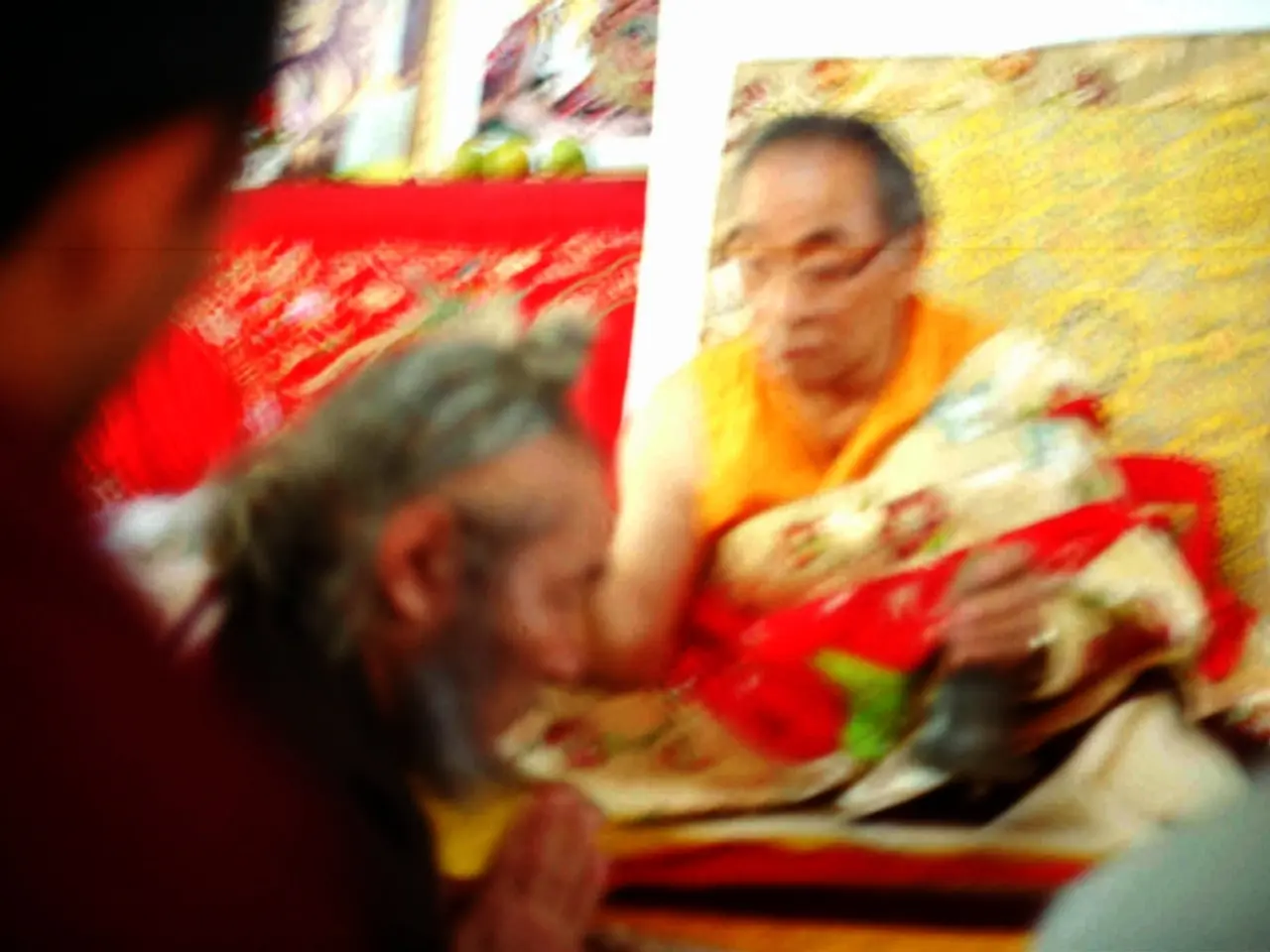Overcoming the Tendencies of Envy and Rivalry
In the realm of spiritual guidance, the Baha'i Faith offers a unique perspective on competition and its impact on the human soul. This ancient faith, with its roots in the Middle East, emphasizes unity, cooperation, and selflessness as antidotes to the divisive effects of excessive competition.
At the heart of Baha'i teachings lies the belief that underlying negative thoughts often cause jealousy, stemming from the belief that one lacks a certain ability and puts a negative limit on one's potential. This perspective is rooted in the Revelation of Baha'u'llah, which aims to reverse the process of society's competitive influence on the human soul.
Spending time with jealous individuals can inhibit the freedom and growth of the soul, according to Abdu'l-Baha. To counteract this, the teachings encourage believers to support others or build community around themselves, thereby diverting attention from themselves and helping let go of being competitive or jealous.
The spiritual approach involves seeing others as collaborators in human advancement rather than competitors, transcending personal pride and attachment to winning or being "better" than others. This transformation is part of a broader spiritual maturation, where the desire for personal gain or status gives way to altruism and genuine love for others.
The Baha'i Faith stresses unity and equality as central principles, promoting a community where individual talents serve the collective good rather than being pitted against each other in rivalry. Competitive economic and social structures, which emphasize self-interest, contrast with spiritual ideals. Overcoming such tendencies requires a conscious effort to prioritize cooperation and shared progress.
Practically, believers are encouraged to focus on self-improvement, helping others, and humility, replacing rivalry with supportive relationships that elevate all members of society. The spiritual approach involves prayer and meditation to foster humility and reliance on God’s guidance, reflecting on the oneness of humanity to counteract divisive thoughts of competition, and engaging in community service to develop selflessness and cooperation.
In the modern context, social media can potentially fuel harmful comparisons, leading to feelings of insecurity and jealousy. Recognizing this, the first step to breaking down competition in one's life might be recognizing self-comparison, particularly through social media. Meditation can help deactivate jealousy and provide an emotional reset.
The individual realizes late that America's love for competitiveness influenced their behavior. Redirecting competitive energy towards internal development goals, such as spiritual health and personal growth, can make striving for excellence feel good rather than cause insecurity. Baha'u'llah advised against considering the greatness or smallness of the recipient, likening abilities to quantities that can vary from a palmful to a gallon.
Striving for excellence by focusing on personal growth and becoming a better, more generous person can lead to a sense of self-improvement and fulfillment. Jealousy, often a product of competition, can hinder the ability to give to others in the spirit of service.
The individual's upbringing was in a midwestern city where avoiding conflict was part of the culture. The individual grew up playing collaborative games rather than competitive sports, which may have contributed to a more cooperative worldview.
In conclusion, the path to overcoming competitive tendencies in Baha’i belief is through cultivating inner virtues aligned with unity, and transforming one’s perspective from rivalry to partnership in the spiritual and social advancement of humanity.
In the Baha'i Faith, personal growth and self-development are encouraged as means to combat negative thoughts that can stem from competition, such as jealousy. This growth encompasses mindfulness, goal-setting, and the pursuit of spiritual health.
Adopting a collaborative mindset is instrumental in the Baha'i path, viewing others as partners in human advancement rather than competitors. This shift in perspective is part of broader personal growth, where self-interest gives way to altruism and genuine love for others.




